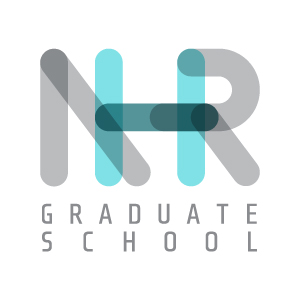NHR Graduate School - Course Week 2024
Section outline
-

Dear Fellows,
we look forward to welcoming you to the Summer School 2024 of the NHR Graduate School. The NHR Summer School, organized by the NHR Alliance and the following NHR centres, aims to convey HPC knowledge and software development skills to all fellows of the NHR Graduate School. In addition, special emphasis is given to networking and communication training as well as career planning.
The following NHR centres and the NHR Office organizes the NHR Summer School 2024:
NHR@TUD, Technische Universität Dresden - Zentrum für Informationsdienste und Hochleistungsrechnen (ZIH)
NHR@Göttingen, Universität Göttingen - Gesellschaft für wissenschaftliche Datenverarbeitung mbH Göttingen (GWDG)
NHR@SW, NHR Südwest - Goethe-Universität Frankfurt, Rheinland-Pfälzische Technische Universität Kaiserslautern-Landau (RPTU), Johannes Gutenberg-Universität Mainz, Universität des Saarlandes.
This Moodle page provides all necessary information, including links to lecture slides and miscellaneous material.
If you have any further questions on the NHR Summer School 2024, please contact us.
The NHR Team will be available by phone during the NHR-Summer School 2024
Monique Drees, NHR-Office: 0171-2100 151 (Mo – Tue; Thu-Fri)
Diana Häsener, ZIH-Office: 0351-463 40783 (Mo – Fri).
Date:
June 10-14, 2024
Location:
Zentrum für Informationsdienste und Hochleistungsrechnen (ZIH), TU Dresden
Zellescher Weg 12
01069 Dresden
GermanyAccomodation:
Hotel ibis Dresden Zentrum
Prager Straße 5
01069 Dresden
Phone: +49(0)351 48564856
E-Mail: ww.ibis-dresden.de
Travel Advice:
Bus route 66 from Dresden main station "Unter den Brücken" to "Dresden Techn. Universität" (two stations; bus direction: Freital Deuben).
350 m walk from station "Dresden Techn. Universität" to "Zentrum für Informationsdienste und Hochleistungsrechnen (ZIH), TU Dresden".
Wifi access
We recommend logging in via eduroam to the university Wifi. If you already using eduroam at your NHR home centre, it should work automatically on the host campus.
If you haven't used eduroam before, please follow the set-up instructions of your NHR home centre, ideally before your start at the NHR Summer School.
-
To tailor the program to the knowledge and experience of all participants in the best possible way, we kindly ask you to carry out the survey on your HPC knowledge level.
Participation will take approx. 2 minutes. All answers are anonymous.
https://event.zih.tu-dresden.de/nhr/summerschool/survey.
Participation is required. Please complete the questionnaire by April 24, 2024.
-
-
Opened: Monday, 8 April 2024, 12:00 AMDue: Sunday, 9 June 2024, 12:00 AM
Fellows should give a short presentation on themselves and their research work to a maximum of 3 minutes.
-
Applied Quantum Computing, organized by NHR@SW
09:00 – 09:30 Introduction / General Information
09:30 – 10:30 Introduction to Quantum Computing (QC)
10:30 – 11:00 Coffee Break
11:00 – 12:30 Gate-Based QC & Variational Methods
12:30 – 13:30 Lunch Break
13:30 – 15:00 Quantum Annealing
15:00 – 15:30 Coffee Break
15:30 – 18:00 Hands-On Sessions (Annealing & Gate-Based)
18:30 onwards organized evening program with joint dinner
(more information see PDF below)
Thursday is all about quantum computing. In the morning, an introduction to quantum computing (QC), its formalisms, and mathematical descriptions from the start of this workshop. Once the foundations have been laid, we will dive deeper into the world of gate-based QC and Variational Quantum Algorithms (VQA). In the afternoon, participants will be introduced to quantum annealing before deepening what has been learned with hands-on sessions featuring topics of gate-based QC as well as quantum annealing.
Lecturers
Dr. Manpreet Singh Jattana (Postdoc Goethe University - MSQC)
Philip Döbler (Ph.D. Student Goethe University - MSQC)
Cedric Gaberle (Ph.D. Student Goethe University - MSQC)
Further information: https://msqc.uni-frankfurt.de/
Pre-Requisites
Working knowledge of Python to execute the code on Jupyter notebooks. Please bring your laptop. No previous knowledge of quantum mechanics is necessary to participate. Some knowledge of classical optimization algorithms and Qiskit is helpful but optional.
We ask you to create a virtual environment for the hands-on session. The file "requirements.txt" below lists all the packages you will need among other requirements.
If you have any further questions or problems with the installation, please contact Mr. Manpreet Singh Jattana via: jattana@em.uni-frankfurt.de.
-
Soft-Skills Training, organized by the NHR Office
Agenda
09:00-14:30 - 1st cohort: Career planning and networking
09:00-14:30 - 2nd cohort: Self-presentation and effective communication
09:00-14:30 - 3rd cohort: Intercultural communication, anti-bias training
10:15 - 10:30 Coffee break
11:30 - 12:00 Lunch break
13:30 - 13:45 Coffee break
15:00 Farewell and departure
Lecturers:1st cohort - Dr. Cornelia Rahn, Career planning and networking for academics, https://www.corneliarahn.de/
2nd cohort - Konstanze Bittmann, Successful communication and presentation for scientists, https://www.konstanzebittmann.de/zur-person/
3rd cohort - Nora Benariba + Dennis Sadiq Kirschbaum, intercultural communication, Antibias, glokal e.V., https://www.glokal.org/en/about-us/
